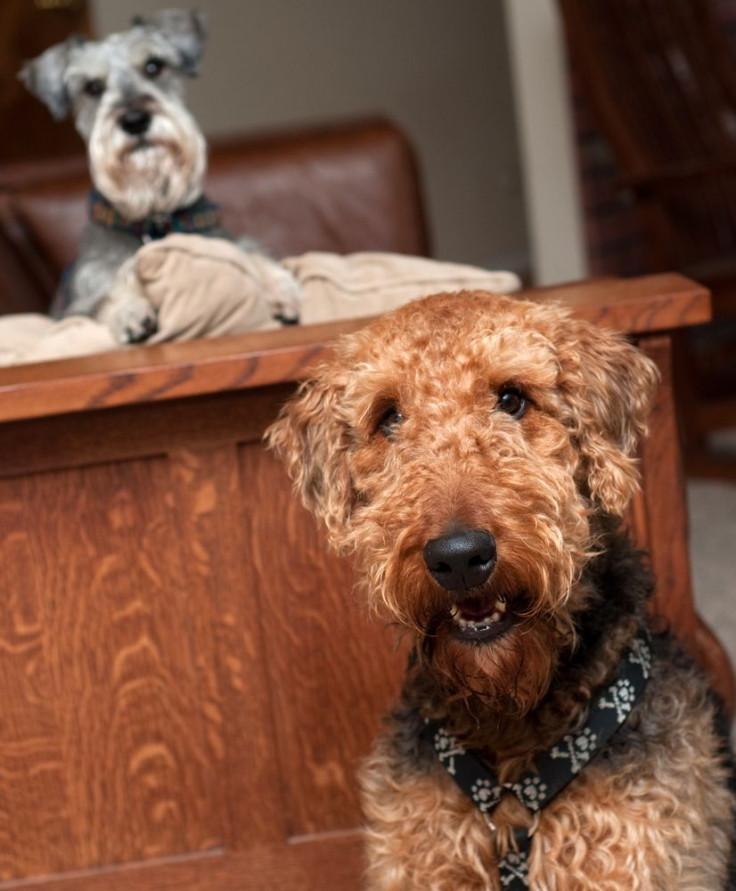Dog Jealousy Is Real: What Research On Canine Emotions Reveals About Human Nature

Now we know: Dogs feel jealousy. Researchers in California have confirmed for the first time scientifically — if not anecdotally — that dogs get cranky when you give your love to somebody else. Tell us something we don't know, right? But that's not the most interesting thing about the study.
The real discovery here is what dog emotions could tell us about our own. Psychologists arrange human emotions into two hierarchical classes. At the bottom are things like anger and fear, the feelings that well up from our primordial core; we don't even have to think about them. On top are more complex emotions, such as guilt or shame, that require a bit more cognition. Guilt requires a bit of logic, including the ability to compare actions to a moral standard.
But where does jealousy fit? Are we hard-wired to resent those who hog the affections of our loved ones or sexual partners? Or are jealous feelings the product of higher-level thinking ("Is he better than me?")?
Psychologists who believe the latter would tend to argue dogs don't get jealous, which of course is just silly to anybody acquainted with the species. By way of proof, here's an article published in Modern Dog magazine. When the author tried to pet a member of a dogsled team, the owner warned: "If you pet one, you have to pet them all. They get really jealous."
Reputable as Modern Dog is, that's not good enough for science. So Christine Harris and Caroline Prouvost at the University of California, San Diego, devised an experiment. They asked 36 dog owners to play hard to get with their dogs. The second dog in the love triangle was actually an imposter, a toy dog that barked and wagged its tail for eight seconds. (Scientists have to limit as many variables as they can; presumably, a fake dog helped them control the environment better than real dogs would have.)
The findings were as expected. Dogs started barking or whining or trying to insert themselves between their owner and the new dog they were petting. As a further test, they told the owners to treat a jack-o-lantern bucket as though it were a dog and to read a book aloud. Neither of these two behaviors produced the same reaction from their pets.
"Our study suggests not only that dogs do engage in what appear to be jealous behaviors but also that they were seeking to break up the connection between the owner and a seeming rival," Harris said in a statement. Her findings appeared Wednesday in the journal PLOS ONE. "We can't really speak to the dogs' subjective experiences, of course, but it looks as though they were motivated to protect an important social relationship." (If there was any doubt the dogs believed the toy dog was real, consider that 86 percent of them sniffed its butt afterward.)
There are several ways to interpret this paper. Maybe dogs, being domesticated and raised alongside humans for so long, have adopted certain people-like behaviors. For example, unlike wolves, dogs can follow our fingers when we point. And some dog owners say their dogs even show signs of guilt.
But for their part, the authors believe they've settled the matter: If dogs can be jealous, then jealousy is a primitive emotion evolved millions of years ago (or at least long before humans existed). Non-human apes exhibit jealous behavior. So do human infants just months from the womb. "Many people have assumed that jealousy is a social construction of human beings — or that it's an emotion specifically tied to sexual and romantic relationships," Harris said. "Our results challenge these ideas, showing that animals besides ourselves display strong distress whenever a rival usurps a loved one's affection."
This may mean that jealousy has evolutionary benefits. (Charles Darwin believed dogs could be jealous.) That yearning for attention, and the behaviors associated with it, may help ensure something vital to our animal instincts, whether it's the provision of basic needs or reproductive success.
What we can't know is how dogs are actually feeling when they experience jealousy. Do they lose sleep over our infidelity? The researchers say jealousy is the third-leading cause of non-accidental homicide. It's not too late to make amends with your dog.
Source: Harris CR, Prouvost C. Jealousy in Dogs. PLOS ONE. 2014.



























